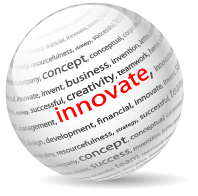MBM (General)
-
ORGANISATIONAL CHANGE AND MANAGEMENT (Core)
This module focuses on the behaviour of people at work by placing an emphasis on understanding the vital importance of managing change and culture. You will develop an appreciation of the dynamics of working organisations in a rapidly evolving business environment by planning and carrying forward system wide change programmes.
Earn a world class MBA or MBM for under $10,000.
-
LEADERSHIP, STRATEGY AND INNOVATION (Core)
-
CREATING BUSINESS EXCELLENCE AND MARKETING (Core)
-
BUSINESS ECONOMICS AND FINANCE IN A GLOBAL ENVIRONMENT (Core)
-
MANAGING INNOVATION (Generalist MBM only)
-
CONTEMPORARY ISSUES IN STRATEGIC MANAGEMENT (Generalist MBM only)
-
RESEARCH METHODS (Core)
-
DISSERTATION
-
SPECIALISED MBM MODULES
MBM (Finance)
Module: Global Finance
This module is designed to provide the non-specialist graduate student with a comprehensive introduction to the global capital markets. The module will provide you with sufficient depth of explanation and analysis so that it is of practical use to you if, for example, you are planning a career in the areas of the capital market business and you wish to improve your knowledge of the products, strategies and participants of these markets.
Description of module content: The module will examine the structure and functions of the international monetary and financial system. It will analyse the development and the implications of the global financial marketplace. It will examine the functions, products, participants, operational arrangements of, and the linkages between, the money markets – short-term interest rate products, the foreign exchange market, the government and corporate bond markets, the equity capital markets and the international derivatives markets.
Module: Finance for Management Decision Making
To introduce you to the role that finance plays in an organisation, with particular reference to the long and short-term decision making of an organisation. A good knowledge of finance can help you answer the following questions – What products to manufacture/services to provide to achieve required profit levels ? What future capital investment offers the best return for the business? How can the business manage its working capital? How is the business performing?
Description of module content: Objectives of accounting. The primary financial statements. Profit v Cash and preparation of cash budgets. Interpretation of financial statements using ratio analysis Management performance evaluation. Short-term decision making using cost classifications Capital investment appraisal methods.
MBM (Hospitality and Tourism)
Module: Contemporary Issues in Hospitality Management
The hospitality industry is made up of a large number and range of sectors all of which are operating in an increasingly dynamic and competitive environment. In this context, it is of vital importance for the managers of these businesses to identify and understand the key issues in their environment and to develop strategies/responses that will ensure business development and success. With this in mind, the aim of this module is to help you to fully understand and appreciate the extensive range of contemporary issues facing hospitality organisations across the world. Moreover, it aims to enhance your ability to critically review the impacts of such issues and trends upon the international hospitality business sector.
Description of module content: Outsourcing and contracting out; Information and communication technology; Innovation management; Crisis management; International marketing and alliances; Service quality; Corporate social responsibility; Environmental management.
Module: International Business Event Management
The MICE (Meetings, Incentives, Conventions and Exhibitions) industry is of huge global economic importance. Business events play a significant role in generating tourism revenue for destinations, thus contributing towards economic prosperity. This complex sector of the tourism industry involves a wide range of stakeholders; including venues, accommodation providers, destination management companies, transport operators and participants themselves. The aim of this module is to introduce you to the issues involved in the planning and management of business events and will be supported by the use of international examples. You will learn about the major stakeholders in the business events industry, and how they interact with one another. You will examine issues of supply and demand at all levels, and analyse the impact made by business events on their chosen destination.
Description of module content: The conference industry in context; Buyers, suppliers and intermediaries; Supply and demand characteristics of the industry; The external environment; Conference planning (buyer and supplier perspectives); Impacts of conference events and venues; Current trends and future issues.
MBM (HRM)
Module: Contemporary HRM
This module gives an overview of key HRM activities within organisations, and insight into contemporary themes and issues. It will equip a general manager with a critical understanding of the contribution that HRM processes (as undertaken by all managers, not confined to HR specialists) can make to the achievement of organisational objectives. The module starts with a consideration of developing theory and current models of HRM, providing a framework for more detailed consideration of key operational areas: resourcing & development, performance management, reward, and the management of the employment relationship to minimise conflict and encourage employee engagement. Current issues such as work life balance, ethics and the management diversity are also covered.
Module: HRM in an International Context
This module examines the critical role of the HRM process (as carried out by both line managers and HR specialists), and the contribution this makes to competitiveness. It covers the range of key HRM areas: integrated approaches to securing employee engagement; manpower planning, recruitment & selection; diversity and equality; performance management, training and development; employment regulation, employee voice and the management of conflict. These are explored through the use of examples and cases drawn from a range of international contexts and students are encouraged to reflect on the approach to HRM in their own culture/country and contribute to the consideration of similarity and difference.
MBM (Marketing)
Module: Global Marketing
The aim of this module is to develop an understanding of how international marketing strategies are applied within the global business environment. After successful module completion you will be able to demonstrate your knowledge and understanding of global marketing in relation to how the macro environment can affect international marketing strategies, evaluate and analyse global marketing opportunities, examine the key decisions of where and how to compete in international markets and finally show how this knowledge can be used to develop a global strategic marketing plan.
Module: Strategic Brand Management
This module will develop your critical understanding of strategic brand management theory and your ability to evaluate the value of such theory to organisations. It will provide you with an understanding of branding from cultural and global perspectives, design and implement brand strategy, and creating and sustaining brand equity long term. It will also provide an opportunity for you to be creative in creating and sustaining a brand.
MBM (Logistics and Supply Chain Management)
Module: Global Logistics and Supply Chains
This module applies the key concepts of modern marketing, logistics and supply chain management to provide you with an understanding of the strategic and operational roles of logistics in the global business environment. Emphasis is placed on global and pan-European systems for materials sourcing and product distribution, to enable you to learn how businesses configure the r supply chains to compete in today’s major trading blocks. Key issues are identified in global logistics and contrast international and domestic logistics systems. The main components of global supply chains and logistics activities involved in their management are explored.
The module introduces the characteristics of global logistics and the role of international logistics in international business. The module covers the development of international trade, regional trading blocs and logistics implications. The rise of global marketing and global logistics is addressed in the context of the international business environment, requiring the management and operation of inbound supplies and sourcing, manufacturing, global distribution channels, international transport and international order management.
Module: Project Management
This module is designed to enable managers to understand projects and the delivery of services within the context of the organisation. Rather than focus on a particular methodology or a software package it presents a range of tools and methods that can help the practising manager put the task in context and provides a vocabulary to articulate the size and scale of the change. The module explores range of tools and methods that can be followed based on the manager’s own style and preference or the organisational culture. By providing a common understanding within the project team and the other stakeholders involved there is a better chance that the project will be successful.
MBM (Project Management)
Module: Project Management
This module is designed to enable managers to understand projects and the delivery of services within the context of the organisation. Rather than focus on a particular methodology or a software package it presents a range of tools and methods that can help the practising manager put the task in context and provides a vocabulary to articulate the size and scale of the change. The module explores range of tools and methods that can be followed based on the manager’s own style and preference or the organisational culture. By providing a common understanding within the project team and the other stakeholders involved there is a better chance that the project will be successful.
Module: Managing Innovation
The module content can be divided into two main components. Firstly, a discussion of key concepts and why innovation management is crucial in most organisations. Secondly, an examination of the leading practical theory related to innovation management, in particular, this will include an in depth discussion of a conceptual model of innovation management. This model will outline the main contextual elements (e.g. innovation strategy, organisation structure, etc.) that affect the process of innovation management and also the process itself. This examination and discussion of innovation management will utilise materials (e.g. examples, cases, etc.) dealing with different kinds of innovation (e.g. product, service, internal systems and procedures, etc.) in a variety of organisations.





